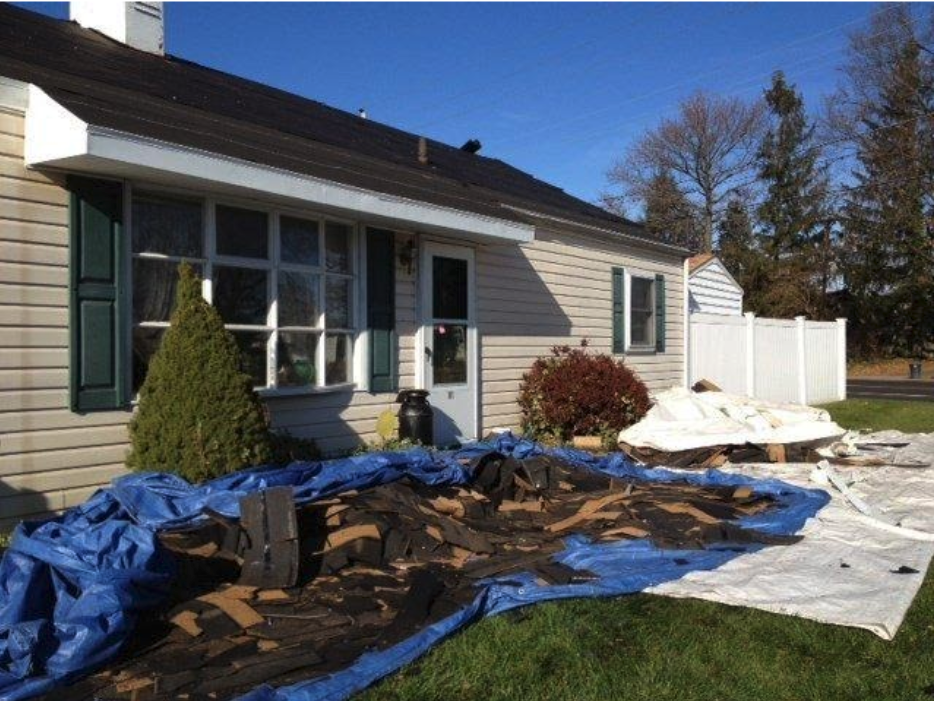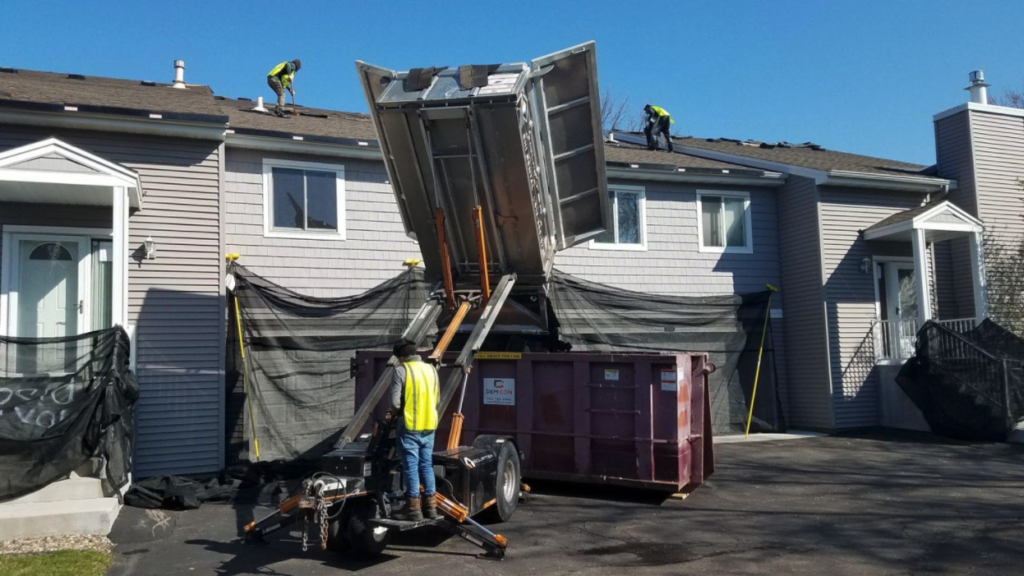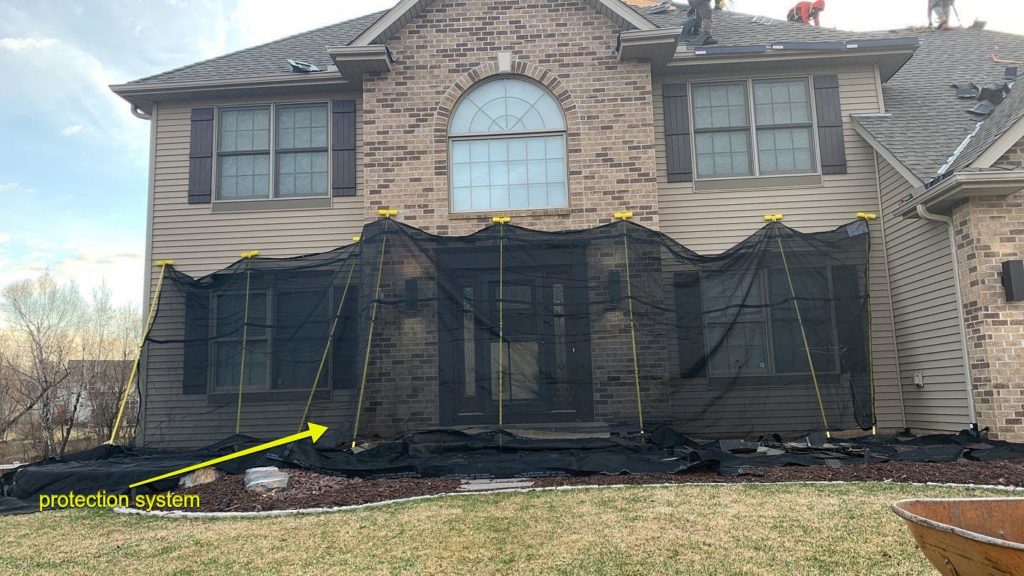Asking your subcontractor the right questions during the interview can help you determine if they are a qualified partner or not. By asking these 5 questions, you can make sure you are hiring the best possible roofing crew for the job.
1. What steps will you take to protect my customers’ siding, gutters, and landscaping?
If you’ve been in the business long enough, at some point, you’ve had to deal with siding and gutters being damaged during the roof tear process. Often, this happens when crews haven’t planned for this risk or brought the right equipment to protect the homeowner’s property. It’s uncomfortable to deal with a customer who’s, at the least, unhappy about the damage, not to mention the amount of time, energy, and lost money you put in trying to resolve it. In the best-case scenario, this leads to heated arguments. In the worst cases, it leads to lawsuits. Most of the time, you’ll be able to come to a fair agreement to repair or replace the damaged property.
The best thing you can do is to avoid the situation in the first place! If your crew has some kind of wall and gutter protection system, you’re much less likely to deal with the headache described above. The taller the house, the larger the risk of damaging the siding and gutters, no matter how careful your crew is. That’s why it’s so important to ask the crew you’re hiring what their wall and gutter protection system looks like. How do they ensure the siding, gutters, lawn furniture, and landscaping are unharmed? What kinds of tools or equipment do they have to protect your clients’ property? Check out the protection systems Pro-Choice crews use below:
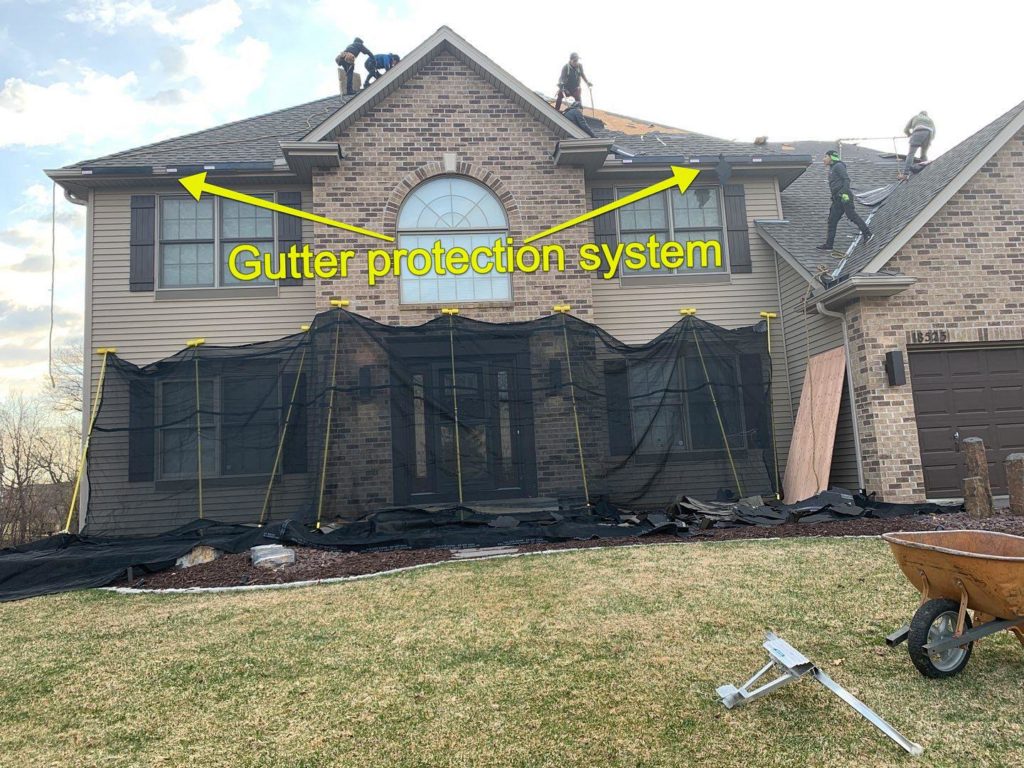
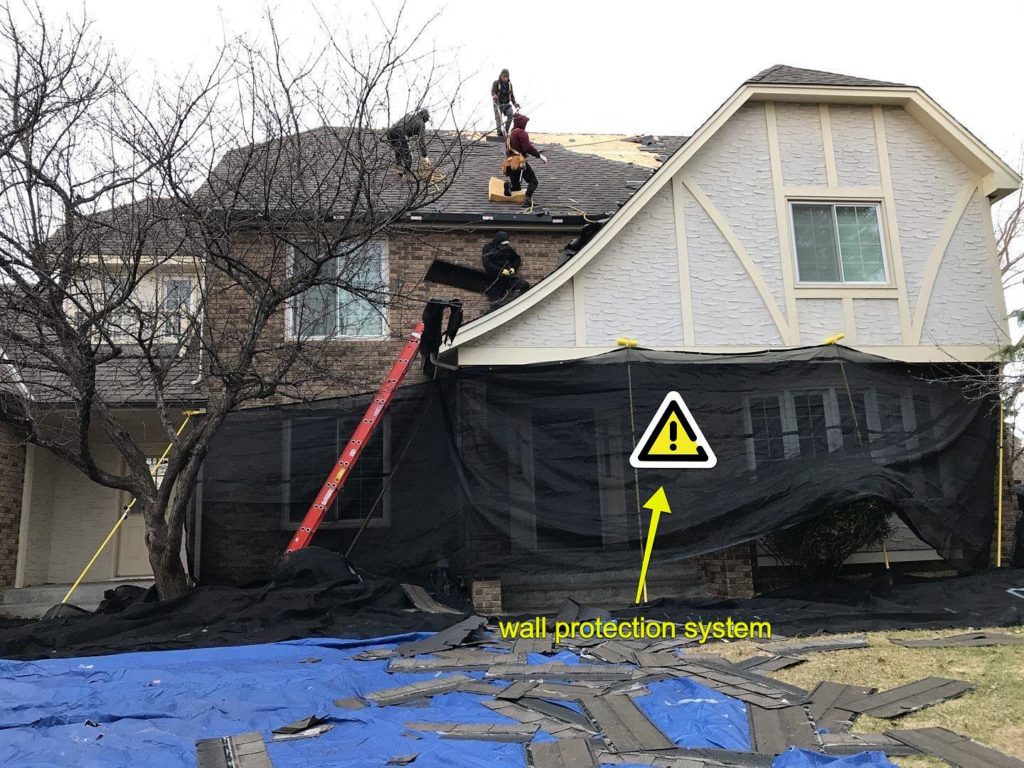
2. What policies do you have that enforce professionalism on the job site?
One of the issues I have seen over the years is with crews drinking alcohol and smoking on the job site. This can be a business killer for your company. It is very important to ask this question to any potential subcontractor you are considering. Ask them if they have a written company policy and procedures and if they do have, how are they enforced? If they have a policy, it will be on their company’s presentation package or otherwise readily shareable. If they don’t have a written policy, at the very least, they should be able to confidently explain how they deal with substance abuse and other breaches of professionalism on job sites. The crew you hire should be able to guarantee that they can be highly organized and professional.
At Pro-Choice Roofing, we have a very strict policy for keeping our crews organized and professional. Check out the Pro-Choice Roofing Company Policies and Procedures.
3. Are you available for small jobs, roof repairs, and roof inspections?
We all have had service call requests from our clients, and this can be anywhere from blown shingles to roof leaks. By asking this question at the outset of your subcontracting relationship, you’ll know whether this provider has a long-term relationship mindset and is focused on building value for your company or if they’re just looking to fill their schedule with as many big jobs as possible.
I’ve dealt with crews in the past that seem to be “above” small jobs. I’ve even seen other crews that say they’ll do smaller jobs to close the deal, but then flake out come storm season. But for contractors, doing great work on a small job can lead to bigger jobs in the future with the same property manager or homeowner. In my opinion, if a crew wants your big jobs, they should be willing to do small jobs as well.
4. How do you onboard and retain new crew members?
The roofing industry is no different than any other industry. Companies must provide consistent training to their workers from the moment they are hired. I’m not just talking about training like “how to install shingles properly” or safety training, which of course, is essential. I’m talking about training that helps workers understand the business, the sales, and marketing processes.
“Why would a crew member need to know about that?”, you may wonder. When crew members understand how contractors get their work — good word of mouth, good reviews, reputation — they understand the importance of the little things: good cleanup, protecting the property, etc. They will understand that every interaction and detail during their work can either contribute to or take away from your ability to generate new opportunities through referrals and reviews.
5. How many years of experience do you have?
If a roofing crew has been in business long enough, it means they have accumulated experience in areas like quality control, team management, communication, sales, marketing, and professionalism. They have a different mindset, one of long-term success. They value clients who provide consistent work.
Crews who have been in the business for years have seen many challenges, so they can easily troubleshoot issues on the job site, providing peace of mind for you. Also, they can provide you with more accurate bids when you need them, and help you see things that you might not see when you are bidding on a job. Combining their experience and yours can really empower your business to do great things!
Finding your ideal crews and building trust with them takes time and effort, but once you find high-quality crews, the relationship can go on for many years. If you would like to learn more about how we train and manage our crews, contact us at office@prochoiceroofing.com.

